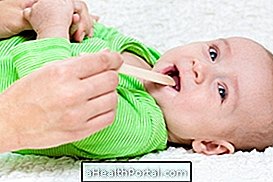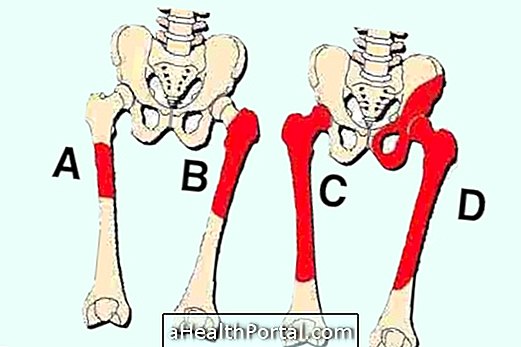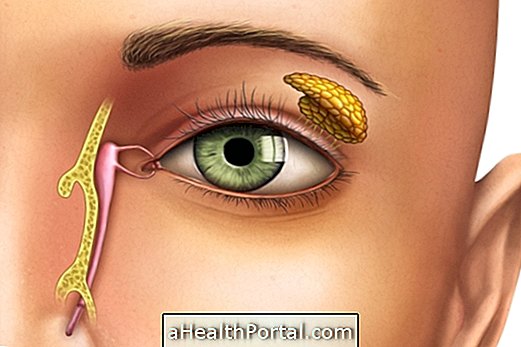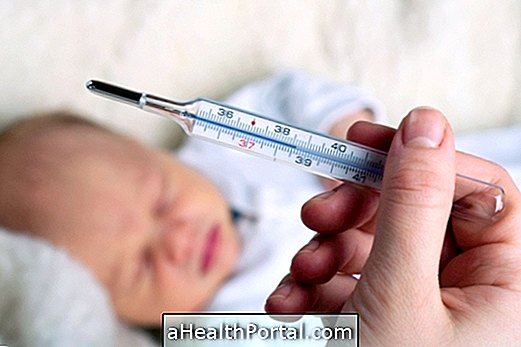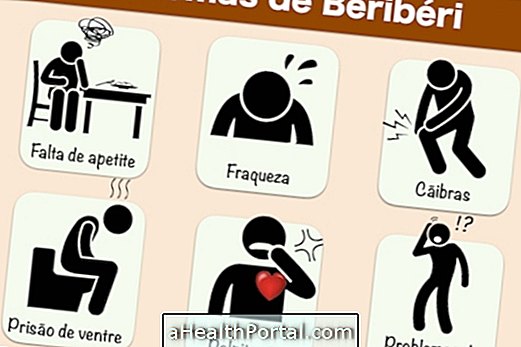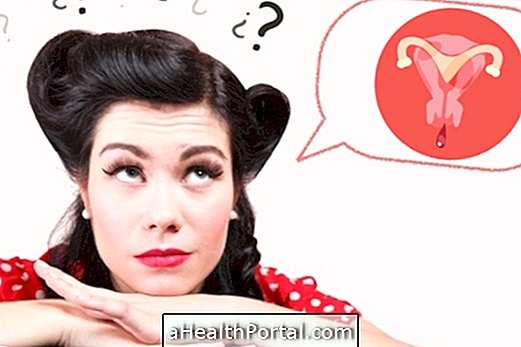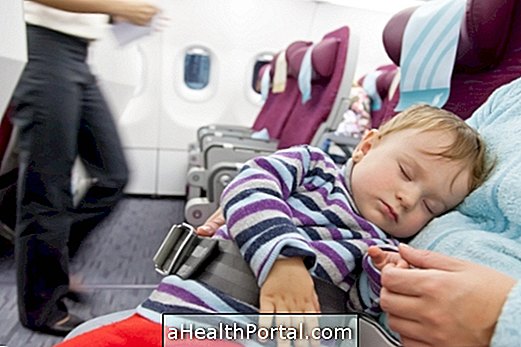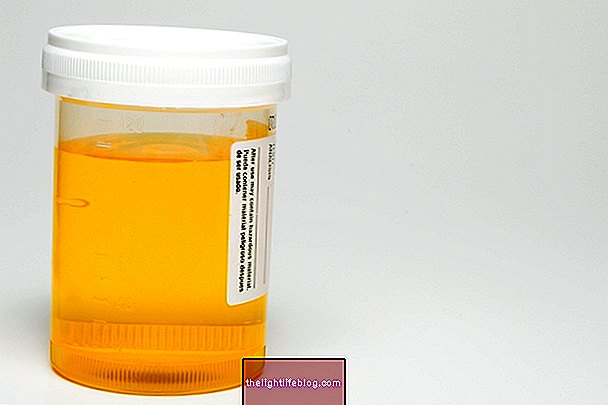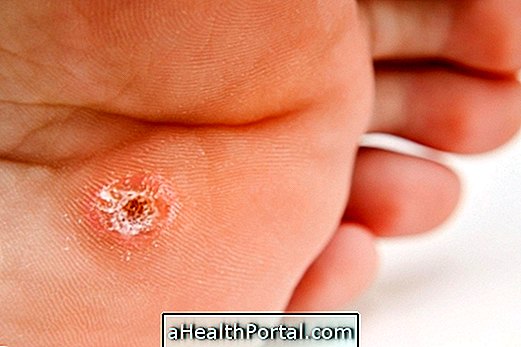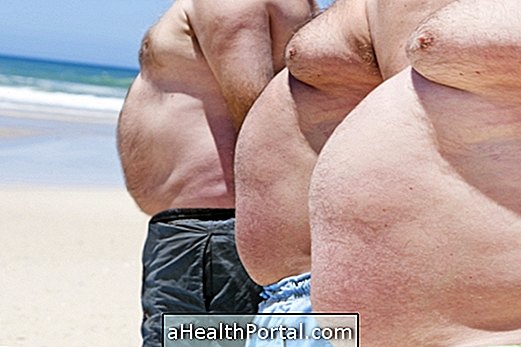The baby's vaccination schedule includes the vaccines the child should take from birth to age 4, since the baby when born does not have the necessary defenses to fight infections and vaccines help to stimulate the body's protection, decreasing the risk of getting sick and helping the child grow healthy and develop properly. Understand how the immune system works.
All vaccines on the calendar are recommended by the Ministry of Health and therefore are free of charge and must be administered at the maternity ward, a health post or pediatrician. Most vaccines are applied to the child's thigh or arm and it is critical that parents, on the day of the vaccine, take the vaccination booklet to record which vaccinations have already been administered, in addition to being able to set the date of the next vaccination .
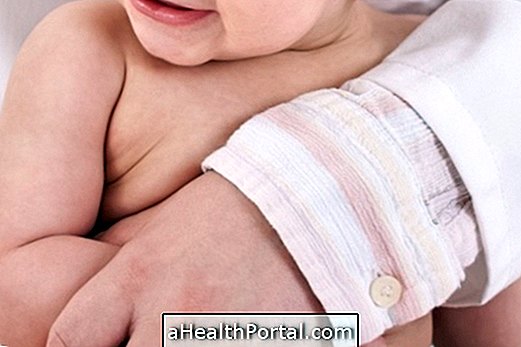
Vaccines that the baby should take
The baby's vaccination schedule was last updated in 2016, reducing the number of doses of some vaccines. Thus, the plan that is currently in force includes:
At birth
- BCG Vaccine: This is a single dose that prevents severe forms of tuberculosis, which is normally applied in the maternity ward and leaves a scar in the arm throughout life, and should be formed up to 6 months;
- Hepatitis B Vaccine: The first dose of vaccine prevents hepatitis B, which is caused by a virus that can affect the liver and should be given within the first 12 hours after birth.
2 months
- VIP vaccine: 1st dose of polio vaccine, also known as childhood paralysis;
- Vaccine VORH: 1st dose against gastroenteritis that is given through a few drops in the baby's mouth;
- Pentavalent vaccine: 1st dose of diphtheria, tetanus, pertussis, meningitis and other infections caused by Haemophilus influenzae type B;
- Pneumococcal 10V vaccine: 1st dose against invasive pneumococcal disease, meningitis, pneumonia and otitis.
3 months
- Meningococcal C vaccine: 1st dose, against meningococcal meningitis of serogroup C.
Four months
- VIP vaccine: 2nd dose of vaccine against childhood paralysis;
- Pentavalent vaccine: 2nd dose with VIP of diphtheria, tetanus, whooping cough, meningitis and other infections caused by Haemophilus influenzae type B;
- Vaccine VORH: 2nd dose against gastroenteritis;
- Pneumococcal Vaccine 10V: 2nd dose against invasive pneumococcal disease, meningitis, pneumonia and otitis.
Five months
- Meningococcal Vaccine C: 2nd dose against meningococcal meningitis of serogroup C.
6 months
- Vaccine VOP: 3rd dose of vaccine against childhood paralysis;
- Pentavalent vaccine: 3rd dose of the VIP vaccine against diphtheria, tetanus, whooping cough, meningitis and other infections caused by Haemophilus influenzae type B.
9 months
- Yellow fever vaccine: single dose against yellow fever.
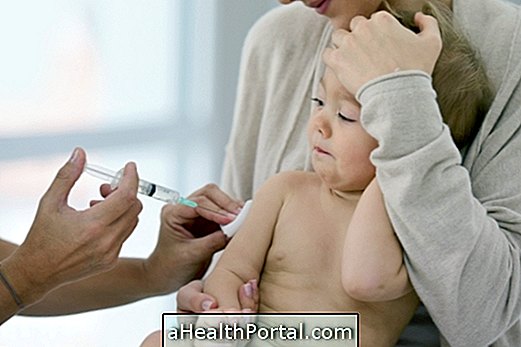
12 months
- Pneumococcal vaccine C: Strengthening of the vaccine against meningitis, pneumonia and otitis.
- Hepatitis A vaccine: single dose only;
- Viral Triple Vaccine: 1st dose against measles, rubella, congenital rubella syndrome, mumps;
Meningococcal vaccine C: booster against meningitis C;
15 months
- Pentavalent vaccine: 4th dose of the VIP vaccine with 1st boost of the DTP vaccine, which protects the baby against tetanus, diphtheria and pertussis;
- Vaccine VOP: 4th dose of polio vaccine;
- Tetra viral vaccine: vaccine that protects against measles, rubella, mumps and chicken pox;
4 years
- DTP vaccine: 2nd boost of the tetanus, diphtheria and pertussis vaccine.
- Pentavalent vaccine: 5th dose with DPT booster against tetanus, diphtheria and pertussis.
In case of forgetfulness it is important to vaccinate the child as soon as it is possible to go to the health clinic, besides being essential to take all doses of each vaccine for the baby to be totally protected.
In addition to the above-mentioned vaccines, the baby can also take the rotavirus vaccine, which, despite not protecting the child, 100% attenuates the symptoms, which is of great help, since the symptoms of rotovirosis are very intense and can lead to dehydration in a few hours. Learn more about the rotavirus vaccine.
When to go to the doctor after vaccination
After the baby takes a vaccine, it is recommended to go to the emergency room if the baby shows:
- Skin changes such as red spots or irritation;
- Fever greater than 39ºC;
- Convulsions;
- Difficulty breathing, coughing or wheezing.
These signs usually appear up to 2 hours after vaccination may indicate reaction to the vaccine. Therefore, when the symptoms appear, you should go to the doctor to avoid aggravation of the situation.
In addition, it is also recommended to go to the pediatrician if the normal reactions to the vaccine, such as redness or pain on the spot, do not disappear at the end of a week. To learn what to do in this case read: Learn how to alleviate the most common side effects of vaccines.
High fever and use of corticosteroids are examples of factors that prevent vaccination, so know when not to vaccinate the child.

